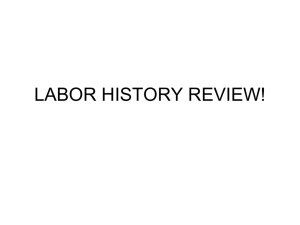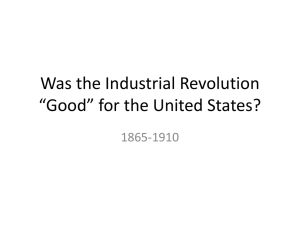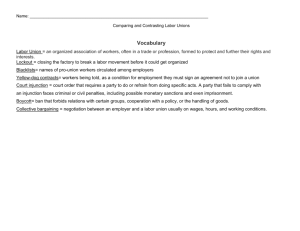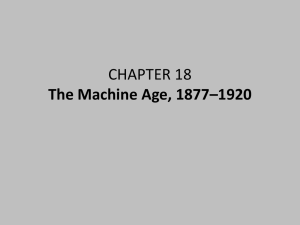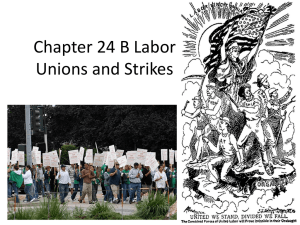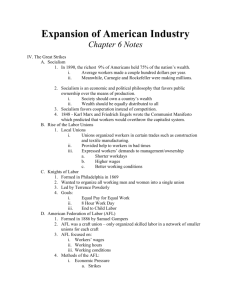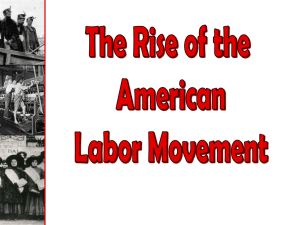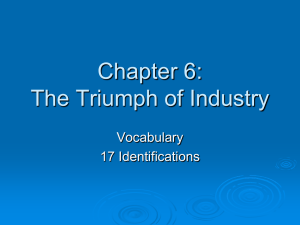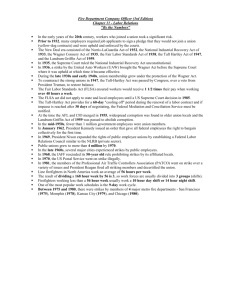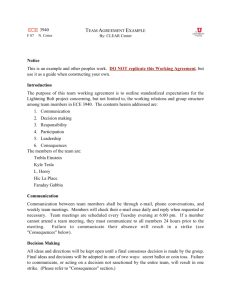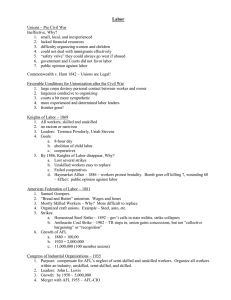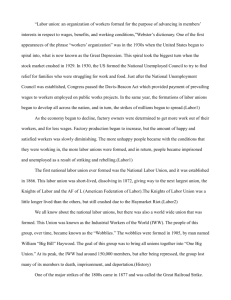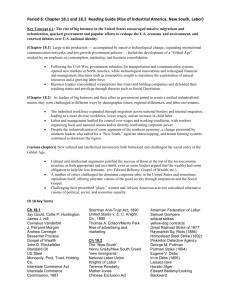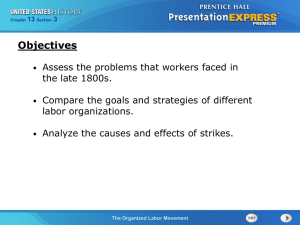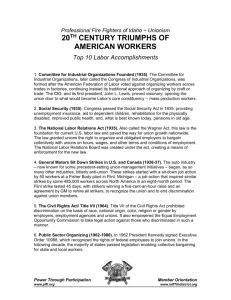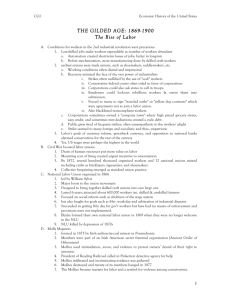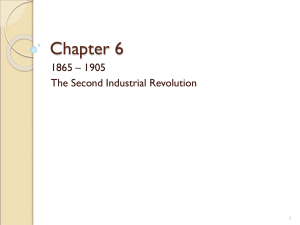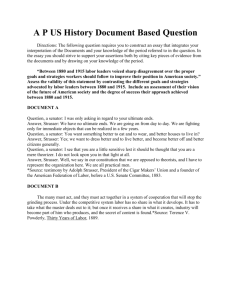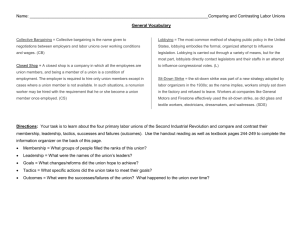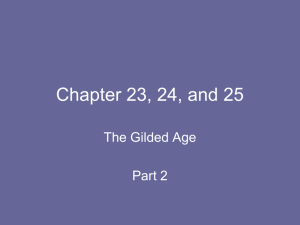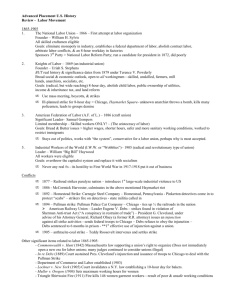Chapter 13 Section 4
advertisement
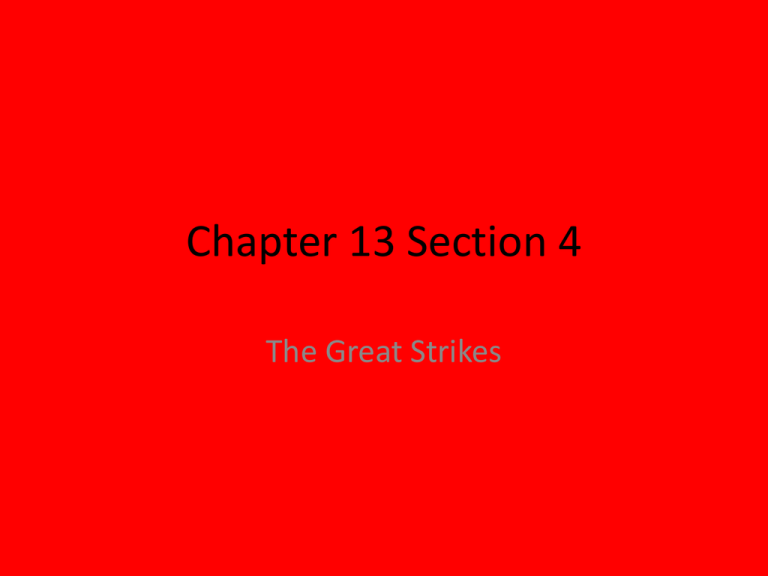
Chapter 13 Section 4 The Great Strikes Gulf between rich and poor • 1890- 9% of Americans held 75% of national wealth • Many resented extravagant lifestyles of the very rich • Many drawn to socialism Socialism • Favors public (government) control of the means of production • Believed society, not individuals, should take charge of the nation’s wealth • Equal distribution of wealth Socialism • Most American opposed Socialism • Goes against free enterprise, private property, and individual liberty Rise of Labor Unions • Emerged after the Civil War to help members through bad times • Soon became the means for expressing workers’ demands to employers – Shorter work days, higher wages, better working conditions Knights of Labor • Formed in 1869 • Organized all working men and women, skilled and unskilled, into a single union • Also recruited African Americans • Sought equal pay for equal work, 8 hour work day, & end to child labor Knights of Labor • Membership eventually dropped when a series of strikes turned violent • Gone by 1890s American Federation of Labor • Formed in 1886 • Led by Samuel Gompers • Craft Union (only for skilled workers) • Women and African Americans rarely recruited • Focused mainly on wages, hours, and working conditions AFL Tactics • Strikes • Boycotts • Collective bargainingworkers negotiate as a group with employers – Has more power than a single worker acting alone The Wobblies • Many opposed the AFL • Broke away and formed the Industrial Workers of the World (IWW) or the Wobblies • Focused on unskilled workers • Radical group-included many socialists • Many of their strikes turned violent Reaction of Employers • Forbade union meetings • Fired union organizers • Forced new workers to promise not to join unions • Refused to bargain collectively • Refused to recognize unions as the representatives of their workers Great Railroad Strike of 1877 • July 1877 • Baltimore & Ohio RR cut wages by 10% • Some workers went on strike and tried to prevent others from working • Turned violent • Riots broke out and spread to several cities Great Railroad Strike of 1877 • President Hayes had to send in federal troops to restore order • Violence continued between rioters and troops Debs and the American Railway Union • Debs thought the violence of the 1877 strike was the result of disorganization • Proposed creating an industrial union to unite all railroad workers, skilled and unskilled • Soon created the American Railway Union
